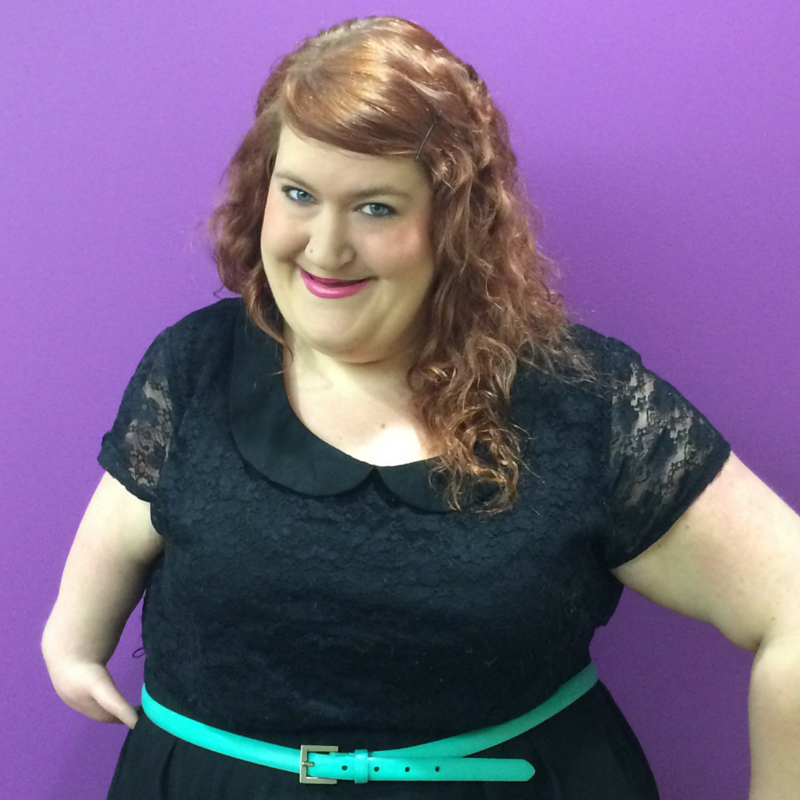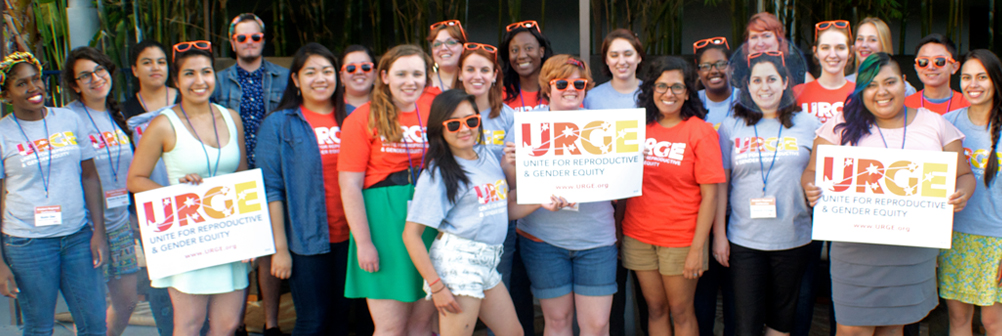Alumni Spotlight: Amber Melvin
 School: California State University, Long Beach
School: California State University, Long Beach
Grad year: 2014
Major: Women’s Gender & Sexuality Studies
How were you involved with URGE?
I was a co-chair for the CSULB chapter and the State Leader for California. When I was a chapter leader, we worked with our campus health center to improve reproductive healthcare access for queer and transgender students. We also established Self Love Week, a full week of programming dedicated to self-care, body positivity, and sexual health. As a state leader, I participated in the California Coalition for Reproductive Freedom and worked withURGE field organizers to plan trainings and campaigns.
What do you do now and how have you brought a reproductive justice frame to the work you do?
Right after I graduated, I started working with Reproductive Health Technologies Project in Washington, DC. I work on our Health and Wellness program, where a large part of my work focuses on the ways that environmental factors impact one’s reproductive health. Mounting scientific evidence indicates that the consumer products we use every day as well as the air, soil, and water around us contain chemicals that harm our reproductive health. Some chemicals in our environments have been linked to male and female infertility, alterations in ovarian function and menstruation, and altered breast development and puberty onset. These chemicals are also lacking in regulation, as the Toxic Substances Control Act has not been updated for nearly 40 years. Committees of color and low-income communities are the hardest hit by environmental racism and the lack of chemical regulation because they are more likely to be exposed to harmful chemicals in their work environment and near their homes.
I use a reproductive justice framework in my work by acknowledging that these problems will not be solved by buying safer products or moving to a safer area. We must address the systems that create disproportionate impacts on vulnerable communities. That is why we are working to pass comprehensive chemical policy reform and educating other advocates and the public about the links between chemicals and reproductive health. As a reproductive health advocate, I know it is not only important that people have access to the technologies that allow us to limit our reproduction, but that our homes, work, and communities are safe for us to create and raise our families in.
What skills or knowledge did you learn from URGE that you use in your current work/life?
The most important thing that I learned from URGE is how to apply the reproductive justice lens to everything. The ability to find the connection to sexual health and reproductive oppression in every issue strengthens the work that I do at RHTP. I also learned the importance of building coalitions and reaching out to folks in other movements. You never know who else is interested in working on the same issue that you are. I also learned that it really is hard out here for a young person trying to make an impact in the field. I am so grateful that URGE lifted me up and created space for me to work in the reproductive health and justice movements.
What are your top priorities in politics and/or reproductive justice?
I look forward to the day that we end bans on abortion coverage, such as the Hyde amendment, which denies abortion care to people who get their health insurance through the federal government. Bans on abortion coverage disproportionately impact low-income people and people with disabilities, like myself.
I also would like to see greater effort by the reproductive health, rights, and justice movements to work with the disability community. This partnership is imperative and an area that we have historically struggled with. As we see abortion bans based on disability popping up at the state level, yet we continue to use narratives about abortions based on fetal anomalies to make our case for the need for abortion access, we are doing a disservice to disabled folks who might otherwise share our values. Disabled folks are also at a greater risk of abuse and sexual assault, so we need to make sure that the sex education that we advocate for specifically includes information about disability.
Who inspires you?
Most recently, I am inspired by the bold Black women who took over the stage at the Netroots Nation Town Hall to draw attention to the #BlackLivesMatter movement. Many of the folks who took part in this action to hold progressive Presidential candidates accountable for not explicitly addressing issues of white supremacy and structural racism are leaders in the reproductive justice movement. Reproductive justice was created by Black women who needed to call attention to the ways that the reproductive health and rights movement was causing harm to women of color. I am so thankful for the ways that reproductive justice leaders have always asked for more from progressive allies. I appreciate that they continue to challenge me to do my own work better.

